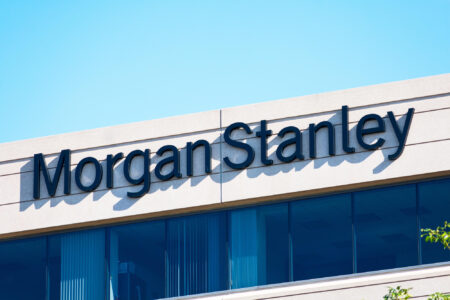The Crypto Valley is known to be one of the most "crypto-friendly" regions in the world. But what specifically is happening within the Blockchain ecosystem? The "Crypto Valley Roundup" aims to provide insight and highlights from selected events every two months.
With the first Blockchain companies settling in the area of Zug from 2013 onwards, the term "Crypto Valley" was soon born in reference to the "Silicon Valley”. Thanks to politics and regulation, Switzerland was able to create the necessary legal certainty for a flourishing ecosystem around Blockchain and cryptocurrencies at an early stage.
The regulator, which provides the necessary legal certainty for an industry, has been active since 2015. Internationally, this is very early for the Blockchain space. Last but not least, the space has enjoyed new company settlements, and steady development. In the meantime, the ecosystem has advanced into various industries and the Crypto Valley has also grown geographically far beyond the canton fo Zug. So it's high time to take a closer look at what's going on.
"Crypto Bank" accelerates Tokenization-plans
Sygnum AG, along with SEBA, were among the first two Blockchain financial service providers to receive a banking license from the Swiss Financial Market Supervisory Authority (FINMA). At the end of November 2020 (less than a year and a half after this milestone), the digital asset specialist launched the world's first fully regulated tokenization solution. Indeed, Sygnum is convinced that the technology will greatly simplify capital raising and will democratize access to investment opportunities. Using their own platform, they also tokenized their shares two weeks after launch.
Tokenization, in a nutshell, describes the representation of an asset on the Blockchain. Especially for illiquid assets like real estate, art or commodities, tokenization can open the doors to a new world. Thanks to their divisibility, global transferability, and the low transaction costs of Blockchain tokens, even smaller private investors gain access to "non-bankable assets". Markets with historically low liquidity can thus enjoy a new influx of investment.
In addition to its tokenization efforts, Sygnum is working with Swisscom on a platform for easier institutional access into the world of digital assets. This project was joined by the Swiss Stock Exchange (SIX) in December. The first version should be launched before the end of the first quarter of 2021.
Final stage of Blockchain legislation in the Crypto Valley
These developments were only possible because Switzerland has been a pioneer in terms of legal certainty for the distributed ledger technology (DLT). Work on a regulatory framework to adapt existing laws to technological change has been underway since as early as 2014. Last summer, both the National Council and the Council of States unanimously adopted a fundamental bill. Since then, the Federal Council has been busy drafting it, and the implementation of Blockchain legislation is in its final stages.
The first part of this bill entered into force on February 1, 2021. Thus, as of Monday, Switzerland has an explicit legal foundation for the issuance of so-called registry value rights. This newly created legal term refers to securities that, thanks to Blockchain technology, do not require paper. Unlike book-entry securities traded on the stock exchange, these do not require banks. Instead, register value rights are "printed" on cryptographic tokens, which, like cryptocurrencies, are digitally transferable directly from person to person without an intermediary.
Leveraging the new legal framework
Following its domestic competitor, SEBA Bank AG also decided to put some of its shares on a Blockchain when the new legislation came into force. These are participation certificates issued as part of a capital increase in December. This Series B financing round, which amounted to CHF 20 million, was intended to ensure accelerated growth in the international arena as well.
"With the entry into force of the DLT Law, Switzerland reaffirms that it is one of the most advanced and innovative legal and regulatory jurisdictions in the world, which now fully supports the issuance of digital securities on a native Blockchain basis. This is a great step forward to enable and secure the expected innovation in security token issuance." - Hans Kuhn, SEBA Bank Board Member
The bank's equity tokens are based on the Ethereum ERC20 protocol, and are designed to enable seamless connectivity for trading and liquidity on future internationally recognized digital liquidity venues.
Crypto ETPs on Swiss Exchange (SIX) gain momentum
Exchange-traded products (ETPs) for cryptocurrencies have also been available on SIX for some time. Crypto Valley based 21Shares AG is one of the largest providers in this regard. In mid-November 2020, they reached a milestone of $150 million in assets under management (AuM). Since then, that number has grown significantly, primarily due to the rally of Bitcoin & Co. Last week, their assets under management surpassed $500 million.
"We have seen a growing appetite amongst Swiss and European based asset managers, Family Offices, hedge funds and private banks for an institutional-grade ETP providing access to bitcoin and other crypto currencies this year. Our fully collateralized, regulated crypto ETPs have been well received and the inflows to date show the trust placed in us by these institutions." - Hany Rashwan, CEO 21Shares
In addition to the usual suspects, the Swiss asset manager also launched the world's first Polkadot ETP. The top 5 project by market capitalization seems to have piqued the interest of some institutional investors.
Another financial services provider in the Crypto Valley receives FINMA license
On February 1, there was another announcement in addition to the Blockchain legislation. Crypto Broker AG, the brokerage arm of Crypto Finance Group, has received a license from the Financial Market Authority as a securities firm with a bilateral trading system. The authorization will allow them to offer new products and services that meet FINMA requirements.
This significant milestone follows a highly successful year for the group, in which the Crypto broker traded the equivalent of over $1 billion in assets and set itself up for future growth.




